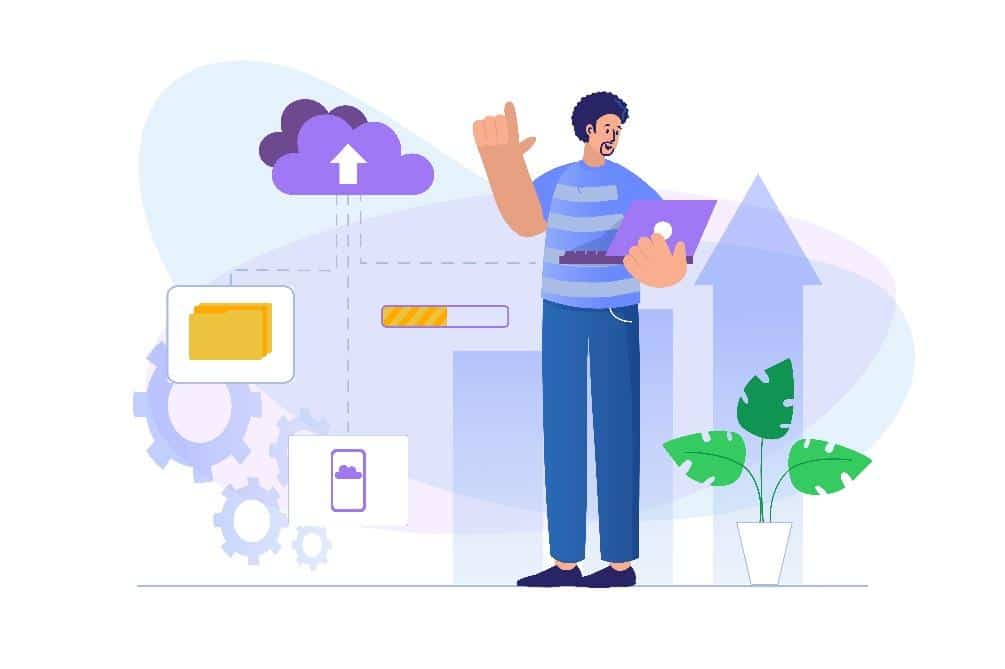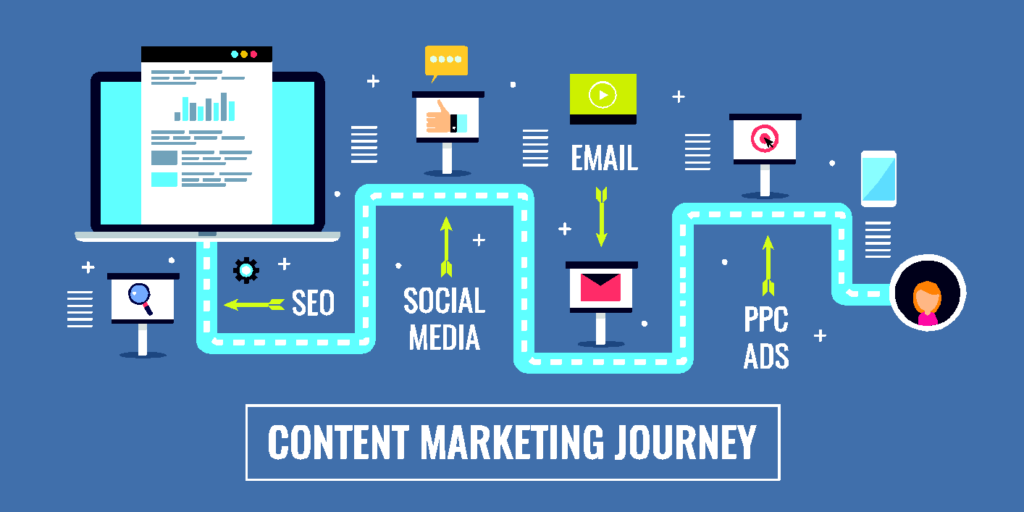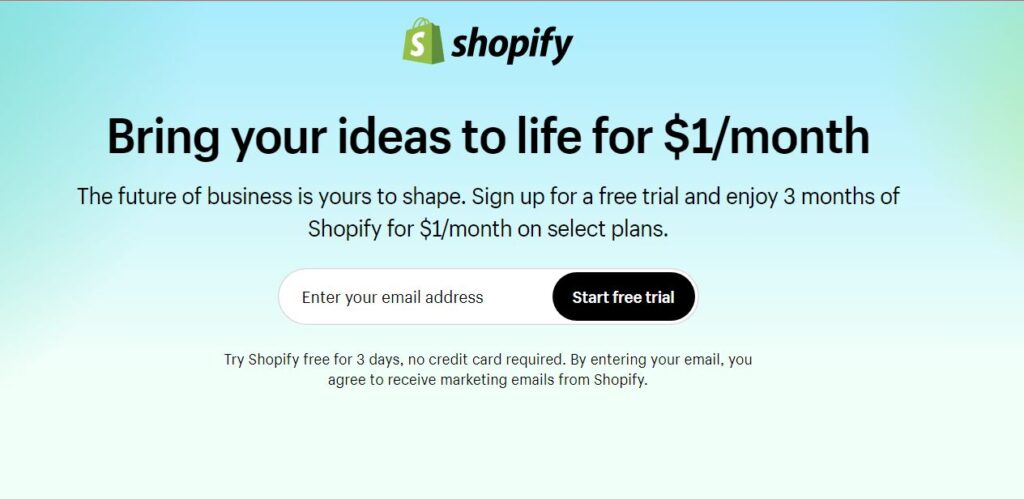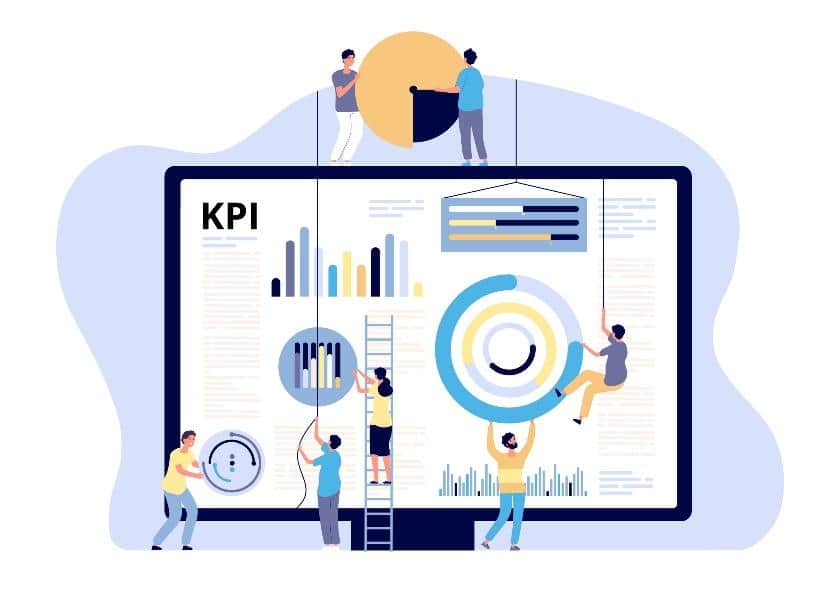In the fast-paced world of digital marketing, it’s hard to get a grip on the latest technology to incorporate into your business-to-business (B2B) marketing. There are enormous strides in AI that have resulted in massive shifts across the marketing industry. The role of technology has become increasingly pivotal; as companies continue to embrace digital transformation, understanding and leveraging B2B technology is necessary.
We recently covered the best B2B marketing strategies for tech in 2024; however, in this blog post, we’ll look at 10 ways marketers in B2B tech can stay updated on the industry and sell themselves more effectively to clients, exploring both the obvious and not-so-obvious tips, as well as learning from the industry. From optimizing your website to learning from other B2B companies, the goal is to help you find tips on driving efficient engagement and conversions in your B2B marketing strategies.
We’ll go into the details in a bit, but first, let’s understand what tech marketing is.
What is B2B Tech Marketing?
Simply put, B2B tech marketing involves promoting and selling technology-based products or services to other businesses. It’s about catering to enterprises’ unique needs, challenges, and goals.
B2B tech solutions are highly diverse in terms of type, cost, and purpose. As such, they attract different businesses as customers and map different customer journeys.
What Are Examples of B2B Technology?
To grasp the diversity of B2B technology, let’s explore some concrete examples of B2B technology that businesses commonly utilize in their operations.
Some of the most sought-after B2B technology areas are:
- Hardware technology: Brands like IBM, Apple, HP, and Samsung deliver hardware solutions and enterprise infrastructures necessary to support businesses’ IT infrastructures.
- Software services: These can be custom software or Commercial Off The Shelf (COTS) / ready-made software that offers a wide range of services to businesses across industries. Well-sought-out examples include Gmail, Microsoft Outlook, Tally, Xero, KashFlow, etc.
- Software as a Service (SaaS): these are cloud-based software apps. Some well-known SaaS products are Slack, Zoom, Amazon Web Services, Microsoft Azure, Dropbox, Zendesk, Salesforce and MailChimp. With software-based tech, businesses can access their data anytime, anywhere, fostering collaboration and efficiency.

Examples of B2B Companies
Examining real-world examples of successful B2B companies and B2B tech content can provide inspiration and insights into effective marketing strategies. B2B tech content undertaken by these companies takes various forms, including blog posts, webinars, podcasts, videos, and case studies. It’s not just about promoting features but demonstrating how technology can solve real-world problems and drive business success.
B2B tech content produced by these companies is informational material that serves various purposes, from educating potential customers to building brand authority and driving lead generation.
Let’s explore a few notable names:
Microsoft
A technology behemoth caters to businesses with its wide range of products, including Microsoft 365, Azure, and Dynamics 365. Their B2B marketing focuses on demonstrating how these solutions can enhance productivity and drive business success.
Is a prime example of a B2B-focused platform. It serves as a professional networking hub, offering businesses opportunities for lead generation, content marketing, and brand building.
Mailchimp
Initially known for its email marketing services, has evolved into a comprehensive marketing platform for small and large businesses. Their B2B strategy emphasizes simplicity and accessibility, making marketing tools available to many users.
IBM
With its emphasis on enterprise solutions, is a stalwart in the B2B tech space. Their marketing showcases how AI-powered technologies, cloud services, and analytics can empower businesses to thrive in the digital era.
10 B2B Technology Marketing Tips You Can Incorporate
As the technology industry moves fast, the B2B sales cycle remains slow. Navigating these realities can be difficult for B2B tech marketers, — so if you’re not sure where to start or are looking for ways to optimize your current marketing strategies, here are tips to get you started.
Define Clear Buyer Personas
Understanding your target audience is fundamental. Create detailed buyer personas to tailor your marketing strategies to your audience’s specific needs and challenges. Remember, you can’t market to your target audience if you don’t know who they are. Here are some questions to guide you when formulating personas.
- What industry do they work in?
- What is the size and type of the company they work for?
- What obstacles do they face that your product will solve?
- Are there specific pain points related to your product or service that they might experience?
- Where do they typically seek information related to their job or industry?
Build Brand Awareness
Invest in creating a strong digital presence. Utilize social media marketing, blogs, podcasts, and other channels to establish your brand as an industry leader. Individual consumer behavior has changed drastically, with an increasing number of people turning to social media to search for and seek reviews and shop. Gen Z, Millennials, and Gen X prefer finding products on social media over any other channel.

Experiment with different channels, and don’t limit yourself to a single marketing channel. Explore various platforms like LinkedIn, Facebook, and niche industry forums to diversify marketing and extend your reach.
Update Your Website
It’s obvious, right? You would be surprised how often businesses neglect their website. Your site is your reception and will be the first thing almost every prospective buyer interacts with before considering your product.
You should optimize your website for mobile browsing. Progressively, more people are on their phones; if a site lags, breaks, or doesn’t work correctly, they are more likely to abandon your website.
Utilize Content Marketing
Develop a good content marketing strategy that addresses the pain points of your target audience. Blogs, whitepapers, and case studies can position your brand as a reliable source of information.
Optimize your digital content for search engines (SEO). This ensures that your business is easily discoverable by potential clients searching for relevant solutions. Identify bloggers within your industry that you can collaborate with. Their endorsement can significantly boost your credibility and reach.

Your content strategy should also make room for educational content. This can include things like tutorials on how to use your solution, product demos, and webinars about industry trends and best practices. Ensure your content is high-quality and unique, and avoid “clickbait” content that people don’t necessarily get much out of.
Offer Free Trials
In the face of increased competition for attention on digital channels, technology companies in the B2B sector struggle to reach the right decision-makers on the specific channels to improve their sales process. Providing a taste of your product or service to influencers through free trials offers hands-on experience that can be a powerful motivator for businesses to purchase. Here is an example from Shopify.

Share success stories
Feature testimonials on your website and marketing materials to demonstrate the value of your product. A great example is Shopify testimonials and previews of brands such as Heinz, Redbull, and Kylie Cosmetics, which use their services.
Nothing speaks louder than “This product suits our needs; perhaps it will work for you too, so you should try it.”
Strategic Email Marketing
Craft targeted and personalized email campaigns to nurture leads. We broke this down to creating an email marketing strategy that works; your emails should help the recipient feel in touch and not overwhelmed. We covered important aspects, such as segmenting your email list based on buyer personas for more impactful communication.
By implementing segmentation, personalization, automation, and engaging content, businesses can create impactful email campaigns that resonate with their audience, generating leads and conversions.
Monitor and Measure Metrics
Regularly track the performance of your marketing efforts. Metrics like ROI, lead generation, and conversion rates provide valuable insights for refining your strategy. Data analytics also help companies understand the effectiveness of their marketing efforts and make data-driven decisions.

Stay current on the industry
In a span of a year, the impact of Artificial Intelligence (AI) can be seen in various industries, including marketing and advertising. Staying up-to-date with the marketing industry helps you make work easier and stay on top of your game. Today, you can easily automate routine tasks and personalize customers’ experiences.
Also, stay current on what your competitors are doing; this helps you anticipate changes and leverage your strengths where they are facing challenges. Track industry leaders and take note of how they’re marketing themselves.
Optimize your website for lead generation
As a marketer, ensure you optimize your website for lead generation by including calls-to-action, lead capture forms, and other elements that encourage visitors to take action.
What Are the Most Popular Technologies for B2B?
In the rapidly evolving landscape of B2B technology, staying abreast of the latest trends is crucial. Several technologies have become indispensable for effective B2B marketing.
Incorporating B2B technology into your marketing strategy comes with a myriad of benefits. The advantages are vast, from streamlining processes to automating communication to enhancing customer engagement. Here are some popular B2B technologies.
AI (Artificial Intelligence)
AI facilitates personalized marketing through data analysis, predictive analytics, and chatbots. It enables businesses to automate tasks, improve customer interactions, and make data-driven decisions.
Cloud Storage
Services like AWS, Azure, and Google Cloud provide scalable and secure storage solutions. This ensures businesses can access their data anytime, anywhere, fostering collaboration and efficiency.
Analytics
Tools like Google Analytics, Adobe Analytics, and others help businesses understand user behavior, track website performance, and measure the success of marketing campaigns.
Email Marketing Platforms
Platforms like Mailchimp, SendGrid, and HubSpot enable businesses to create, send, and analyze the performance of email campaigns. They often include features for segmentation, automation, and personalization.
Social Media Management
Tools such as Hootsuite, Buffer, and Sprout Social assist businesses in managing and analyzing their social media presence. They enable scheduling posts, monitoring engagement, and tracking social media metrics.
Key takeaways
As we navigate the ever-evolving landscape of B2B tech marketing, one thing remains clear: the integration of technology is not just a trend; it’s a fundamental shift in how businesses connect, communicate, and thrive. From strategic content creation to embracing cutting-edge technologies, the key lies in understanding your audience, adapting to market dynamics, and continuously refining your approach.
Success is not solely measured by adopting the latest tools but by the ability to humanize technology, making it relatable and valuable to businesses. By incorporating the tips and examples outlined in this guide, businesses can forge meaningful connections with their target audience, establish themselves as industry leaders, and ultimately drive sustainable growth in this digital era.
Ready to take your B2B business to new heights? Blue Atlas Marketing specializes in driving online growth for B2B enterprises. Let us be your strategic partner in achieving unparalleled success. Explore our B2B marketing services today!





